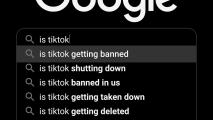With 0.9% of its adult population in prison or jail, on any given day, the United States has the highest incarceration rate in the world — and the rate in Georgia is among the highest in the nation.
In May 2019, advocates for decarceration — a substantial reduction in the number of people behind bars — scored a major win, when Atlanta’s city council voted to close a 1,100-bed jail and replace it with something that would benefit the local community.
Decarceration isn’t just about closing prisons — it’s about building something better in their place.
To determine what that “something” should be, Atlanta Mayor Keisha Lance Bottoms created a task force to reimagine the Atlanta City Detention Center (ACDC).
“My dream for this jail, for this physical facility, is that it becomes a center of equity,” Bottoms said at the time. “I see this as a place that we will have access to childcare, GED training, vocational training, also perhaps some type of housing in this place, workspace.”
After a year’s worth of decarceration efforts, the ACDC now only houses about 25 people — and on June 12, the Task Force released a report detailing its vision for the facility’s replacement.
Closing an Atlanta Jail
After meetings with experts and community members, the task force chose nine “pathways” that will serve as the focus for Atlanta’s new Center for Equity.
These pathways include “access to justice,” “food sovereignty,” and “healthy mind and body,” and the idea is that all of the programming and tenants within the Center for Equity will somehow relate to those pathways.
The Task Force’s report also includes four design proposals from the nonprofit Designing Justice + Designing Spaces (DJDS) that show what form the Center for Equity could take.
Two of the proposals — “Equity Podium” and “Downtown Anchor” — would repurpose the existing ACDC building. The other two — “Center For Equity Campus” and “Distributed Equity” — would involve tearing down the ACDC and building something brand new.
Proposed designs include rooftop gardens and grocery stores, as well as legal clinics and law libraries.
U.S. Decarceration Efforts
Atlanta is expected to choose one of the designs before the end of 2020, but DJDS Co-Founder Deanna Van Buren believes the current police brutality protests could accelerate the process.
“You’re starting to see political will,” Van Buren told Fast Company. “You can see it all over the country. All of a sudden, now we’re ready to put money into something different.”
Even prior to the protests, though, the U.S. was already taking steps toward decarceration.
In October, the New York City Council voted to close its notorious Rikers Island correctional facility, and between 2009 and 2018, the nation’s overall prison population dropped by 10%.
But decarceration isn’t just about releasing inmates and closing prisons — it’s about building something better in their place, and the Center for Equity may be one example of a different path for the community.
We’d love to hear from you! If you have a comment about this article or if you have a tip for a future Freethink story, please email us at [email protected].






